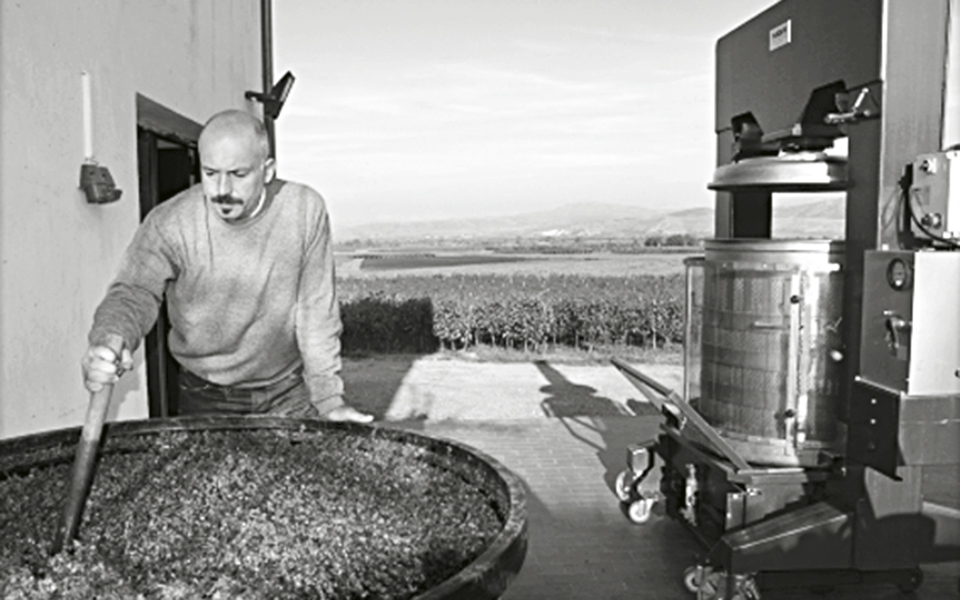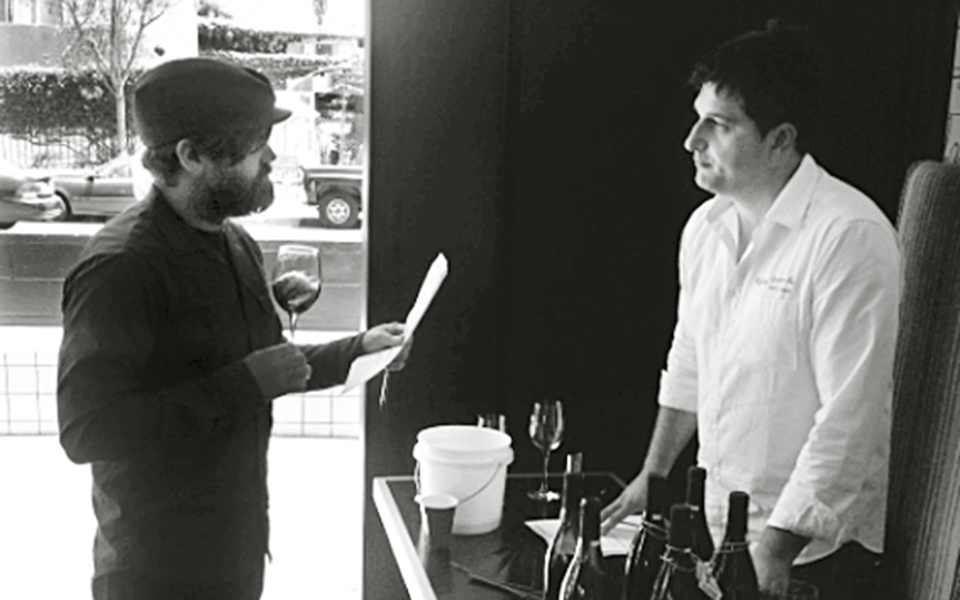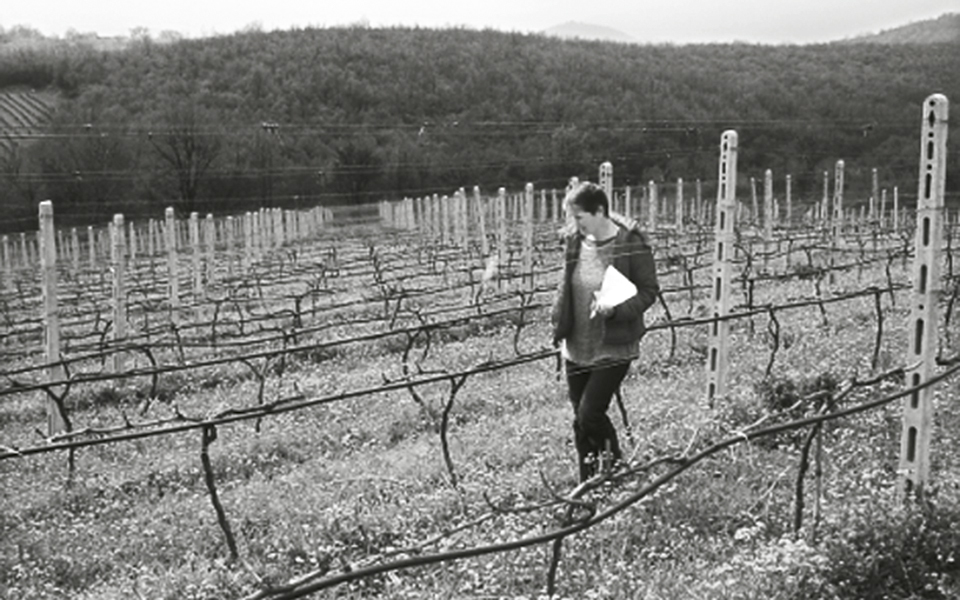My love affair with Greek wines began in the epiphanic year of 2004. I had just moved to Greece, which was caught up in a wave of complete euphoria: not only did the country successfully host the Summer Olympic Games, but the national soccer team also unexpectedly won the UEFA European Championship. The glory continued during the following year, when Greece’s basketball team brought home the FIBA EuroBasket title and Elena Paparizou was crowned champion of the Eurovision Song Contest.
I had already been a passionate wine lover since the early 1990s, when a Scotsman introduced me to fine wine while I was living in London. In the following years I attended hundreds of tasting events, participated in courses and seminars held by well-known wine personalities and purchased many cases of wine at auctions. As they were popular at the time, my focus lay on the French regions of Bordeaux, Burgundy and Champagne, followed by Californian and German wines, plus the top regions of Italy.
I felt convinced that I had a solid foundation in wine knowledge. This feeling was shattered once I started to enter the world of Greek wine. I quickly learned that I had never looked beyond the very center of my gaze: Cabernet Sauvignon, Pinot Noir, Chardonnay, Riesling and a few other grape varieties were all I knew. Greek wines opened my eyes and changed my perceptions forever.
Greece might be a small country, yet it is home to more than 300 indigenous grape varieties. It is literally impossible to become bored. There is always something new to try; the unexpected and unfamiliar constantly waiting to be explored. But it was not only the sheer diversity of wines from different varieties that captivated me, there was something hauntingly different about them. Reds often displayed a charming ruggedness, the aromas filled with wild mountain herbs. Some whites were crispy yet rich, salty like the sea with notable acidity, others fresh with a creamy texture and exotic fruit flavors. Rosés burst with vibrancy and showed lush fruit on the palate. On the other hand, the sweet wines – rich and complex but which don’t cloy – revealed a striking freshness. These wines were unlike any others that I knew. Clearly and distinctively Greek, at the same time they were often astoundingly international in style. I became hooked.
“Cabernet Sauvignon, Pinot Noir, Chardonnay, Riesling and a few other grape varieties were all I knew. Greek wines opened my eyes and changed my perceptions forever.”

Just a few years ago, it was very hard to locate written information on Greek wine in any language other than Greek. There were just a couple of books out there, and it was nearly impossible to find up-to-date content on the internet. I remember how dismayed I was when I was unable to find tables of vintage charts. Whenever I came across articles in foreign publications, they were mostly critical and clichéd. The featured wines were frequently high volume/low cost, often made from international varieties.
Meanwhile, I noticed that the quality of Greek wines in general kept improving year after year. Curious about the discrepancy between my own experiences and those of wine writers abroad, towards the end of 2008 I began to research the export markets. My findings surprised me: about 90 percent of all Greek wine production was consumed locally. The country’s five largest producers dominated the remaining 10 percent that was exported. Clearly, most of the roughly 800 Greek wineries did not export at all. No wonder the foreign press overlooked Greek wines; they simply did not have the chance to try them.
In my mind, this presented an opportunity to combine my passion for Greek wines with a solid business opportunity.
My plan was to introduce Greek wineries and their products to importers and merchants abroad. In order to create interest and demand, I felt the need to educate a broad audience about Greek wine, which is why I started a website, Elloinos. I then used social media extensively to create contacts with others. I also spent a lot of time visiting wineries all over Greece, always on the lookout for exciting producers. I have done business with importers in the US, UK, Germany and even Panama. The US continues to be my most important market.

The last few years have certainly seen a noticeable shift in demand for Greek wines from the export markets. Interest is growing slowly but steadily across the globe. Positive reports on Greek wines are now a regular feature in many publications and there are quite a few websites and blogs that focus on them. Solid information is now easily obtainable, and many international wine personalities are openly embracing wines from Greece. In other words, the perception of Greek wines abroad is beginning to change. Several factors can explain this phenomenon:
The trend for the overall style of wines continues to drift away from full-bodied, rich, high-alcohol wines towards a lighter, more elegant style that showcases finesse rather than boldness. This change in trend began in the US and spread across the globe.
As Master of Wine Konstantinos Lazarakis points out, food and wine go hand in hand in Greece. “Most Greeks would consider discussing wine and food separately as something almost unnatural. It divides two things meant to be together. A Greek will never consume wine without at least a nibble on the side, while having lunch or dinner will require the presence of wine. When people are invited to dinner in the average household, they will never just face a starter, salad and main course. The host will prepare possibly a dozen various dishes, not served all together, but two or three at a time.
“There will be a structure to the meal, but a loose one – meat will come after seafood and before desserts, richer dishes after simpler or fresher ones – but nothing will come off the table until it is finished or until the table is full. Under these circumstances, the quite static notion of matching food and wine goes out the window. Wine will have to provide refreshment or play counterpoint to the mouthfuls.
“In Greece, there is one basic rule: if the wine is enjoyable, the food delicious and everyone has a hearty appetite for food, wine and good friends, then the match is perfect. Wines have to be refreshing, relatively low in alcohol, flavorful but never heavy; they have to be almost discreet on the palate. Greek wines should never be ‘a meal in themselves,’ emphasizing food friendliness above all other aspects.”
These characteristics are only now beginning to correspond with the changing demand of consumers globally. Another trend has also only recently emerged. Consumers, especially the younger generation, have developed a curiosity for wines from unfamiliar regions and/or grape varieties. These buyers tend to stay away from the once popular international grape varieties like Cabernet Sauvignon or Chardonnay. They have become bored with them, as they are grown worldwide and are present on every wine list. They rather wish to enjoy new revelations, experience other aromas, tastes and styles. Again, Greek wines have emerged as a category that satisfies this growing group of wine enthusiasts.
“One can be fairly certain that the quality of Greek wine will continue to improve drastically over the coming years and decades.”

The country’s wine industry has also launched serious promotional efforts. For the first time, these campaigns are supported by a large number of wineries, from small labels to large brands. This team effort has produced results. Initiatives abroad include trade tastings in key areas, exhibitions, seminars and presentations, trade luncheons and more. Perhaps even more importantly, influential people from the wine industry, such as journalists, critics, bloggers, buyers, etc, are being invited on press trips to Greece. This allows them to meet with winemakers, visit wine regions, attend lunches with key people from the industry and get a clear picture of the current state of Greek winemaking. In turn, many of them spread the word about Greek wine, becoming de facto ambassadors.

Greece is one of the oldest wine-producing countries in the world; vines have been grown here since antiquity. But its modern wine industry is one of the youngest on the planet. Bottled wine only came in vogue in the 1960s. The “small grower revolution” or trend towards boutique wineries started only four decades ago. Work on the effect of different vine clones may have on the quality of the grapes is still in its very early stages. One can be fairly certain that the quality of Greek wine will continue to improve drastically over the coming years and decades. We have only seen the beginning.
Greeks may look back with nostalgia to 2004, but Greek wineries have come a long way since and have every reason to remain optimistic.











